Deadband
Cannabinoid THC Dominant
THC 13.23 - 16.62%
CBD 0.66 - 1.4%
Effect Uplifted
Side Effect Fatigue
Flavor Coffee
All AboutDeadband Strain
THC
CBD
Potency
Deadband is a unique hybrid marijuana known for its well-balanced effects and intriguing genetic lineage. This cannabis boasts a THC level between 13% and 17%, making it a versatile choice for various users. The CBD content is typically low, under 1%, which means its primary effects are derived from THC. The aroma of weed is a complex blend of earthy and sweet notes, with dominant terpenes like myrcene, pinene, and caryophyllene contributing to its distinctive scent and flavor.
Effects and Medical Uses
Deadband strain offers a balanced high that begins with a euphoric and uplifting mental state, gradually transitioning into a relaxed and calming body sensation. This dual effect makes Deadband suitable for both daytime and evening use. It is also effective in managing mild to moderate pain and muscle tension, providing relief without overwhelming sedation. Additionally, some users find it helpful for combating insomnia when used in higher doses.
Growing Details
Cultivating Deadband weed is relatively straightforward, making it an excellent choice for both novice and experienced growers. It can thrive in both indoor and outdoor environments. Indoors, Deadband plants typically reach a moderate height and benefit from regular pruning to promote better light exposure and air circulation. Outdoor growers will find that cannabis prefers a warm, sunny climate and can grow taller in such conditions. With a flowering time of around 8-9 weeks, this strain is known for producing generous yields of dense, resin-coated buds. Ensuring proper nutrition and environmental control will help maximize the potential of this versatile strain.
Side Effects
Simply let us know how this strain tastes or write a detailed review.
Deadband Strain Cannabinoids
| THC | Tetrahydrocannabinol, or THC, is a major cannabis chemical compound. It is a psychoactive element that stimulates dopamine release and induces euphoria or happiness. THC-rich strains may be helpful with such conditions as lack of appetite, chronic pains , etc. It is considered to be the primary active marijuana component. | 13.23 - 16.62% |
| CBD | Cannabidiol, or CBD, is a major compound in cannabis, which is non-psychoactive. It is also proved to counteract the side effects of the second major component THC. CBD is widely used for medicinal purposes in rubs, oils and so on. It is helpful in muscle pain cases, may treat arthritis and migraines. Even Greeks used it against pain, while Queen Victoria applied it to get rid of menstrual cramps. | 0.66 - 1.4% |
| CBC | Cannabichromene, or CBC, is a minor cannabinoid, meaning that its quantity in cannabis is quite little. Though it has the same origin as CBD and THC, it is different in functions. Without any psychoactive effects, it is an efficient cannabis compound in combating acne and depression. CBC produces analgesic, antibacterial and anti-inflammatory effects. | 0.14 - 0.44% |
| CBG | Cannabigerol, or CBG, is one of the minor cannabis compounds in adult plants. On the other hand, young ones contain a lot of this antibacterial and anti-inflammatory component. During the growth, CBG is converted into different cannabinoids, mostly THC and CBD. The compound itself increases appetite and decreases eye pressure. | 0.3 - 0.86% |
| CBN | Cannabinol, or CBN, is a trace element in cannabis that is considered to be mildly psychoactive. It appears from oxidation THC, exposed to light and heat. CBN is mostly contained in old cannabis and in traditional hashish. It is effective against insomnia, bacterial infections and appetite loss. | 0.52 - 0.17% |
| THCV | Tetrahydrocannabivarin, or THC-V, is a compound contained in cannabis in trace amounts. Even though it is close to THC molecularly, it is different in effects. This compound may be psychoactive only in large amounts. THC-V reduces blood sugar, controls appetite, stimulates bone growth, etc. African Sativa strains are the richest in THC-V. | 0.3 - 0.64% |
Deadband Terpene Profile
| Ocimene | Ocimene (derived from the Ancient Greek word Ocimum meaning basil) is a terpene with sweet and herbaceous flavors, also boasting citrusy and woody undertones. Naturally, ocimene occurs in mint, parsley, orchids, hops, kumquats, mangoes, basil, bergamot, lavender, and pepper. Offers antifungal, anti-inflammatory, and antiviral properties. | 0.28% |
| Limonene | Limonene (also known as d-limonene) is the second most common terpene in nature and the third most common terpene in cannabis. It has a powerful citrus aroma and can be found in all citruses, including lemons, oranges, grapefruits, limes, juniper, etc. Limonene is known to elevate moods and provide anxiety, depression, and stress relief. | 0.33% |
| Pulegone | Pulegone is a less-common terpene found in peppermint and catnip, for example, with a sweet and minty aroma. In small amounts, pulegone could be found in some cannabis strains. It is reported to offer anxiety-relieving effects, increased cognitive performance, and sedative properties. Could remove dizziness. | 0.39% |
| Total terpenes content | 1.00% |
Growing Info
Similar Strains
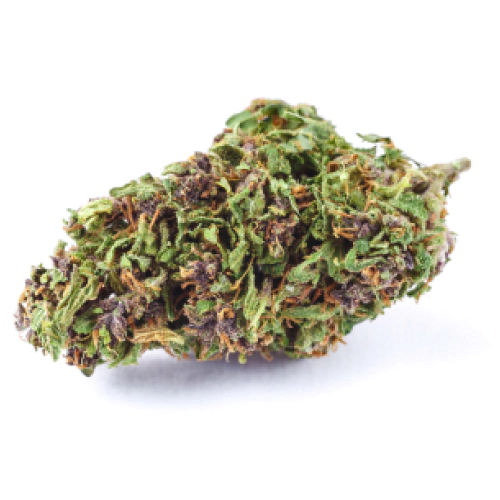
THC 17 - 20%
CBD 0.36 - 0.81%
Effect Relaxed
Flavor Woody
THC 15 - 22.5%
CBD 0.05 - 0.5%
Effect Uplifted
Flavor Chestnut
THC 23 - 23%
CBD 0.07 - 0.28%
Effect Energetic
Flavor Peach
THC 18 - 21.67%
CBD 0.57 - 0.88%
Effect Sleepy
Flavor Pine
THC 20.2 - 23.8%
CBD 1.32 - 1.6%
Effect Uplifted
Flavor Pungent
THC 22 - 22%
CBD 0.68 - 0.86%
Effect Calm
Flavor Grape
THC 14 - 17%
CBD 0.48 - 0.74%
Effect Energetic
Flavor Coffee
THC 7.5 - 8.5%
CBD 0.39 - 1.26%
Effect Happy
Flavor Berry
THC 10 - 17%
CBD 0.66 - 0.77%
Effect Euphoric
Flavor Lemon
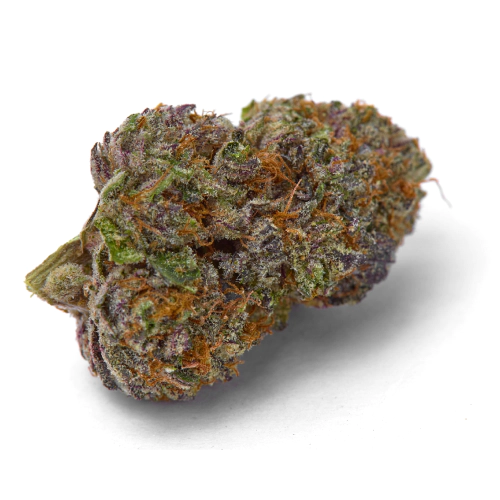
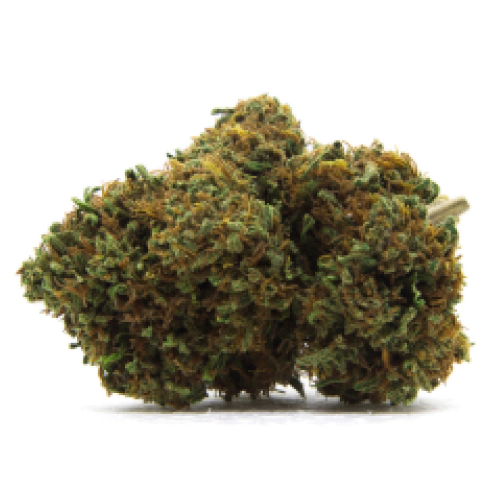
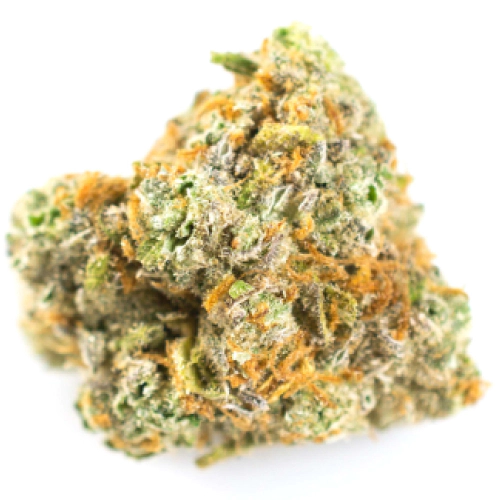
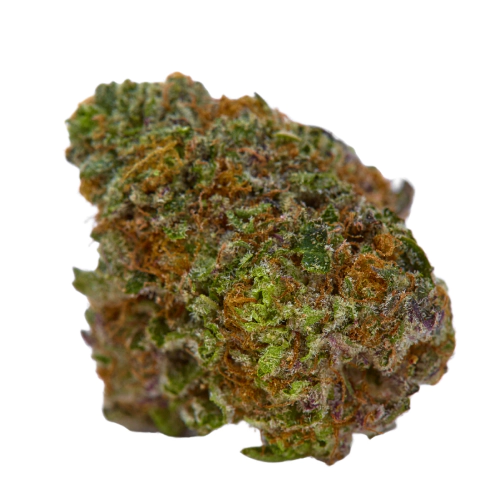
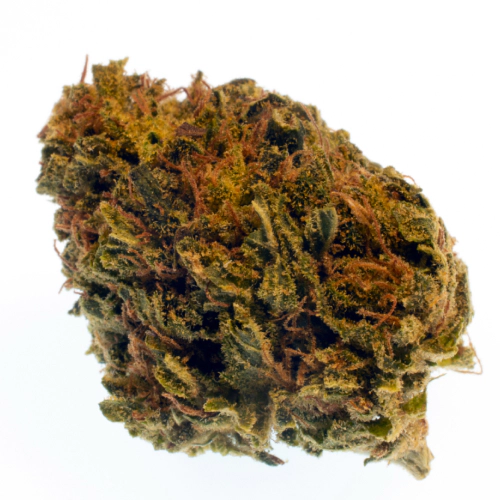
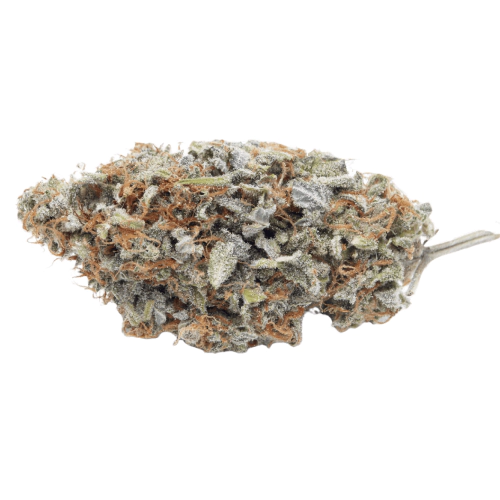
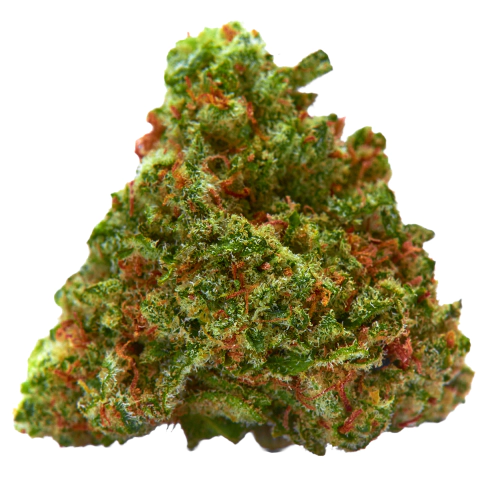
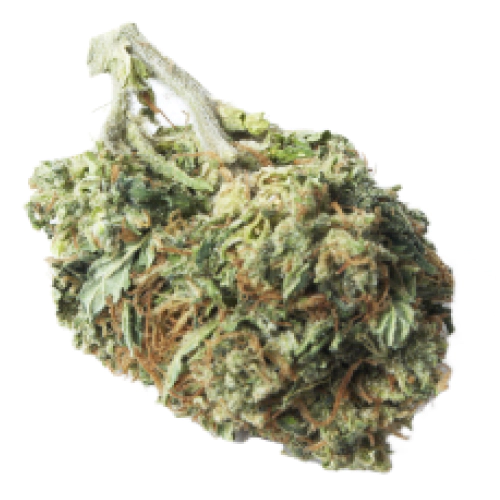
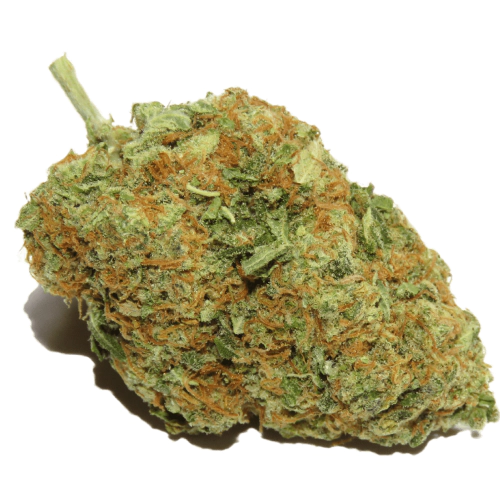
Be the first and share your opinion
Write a Review